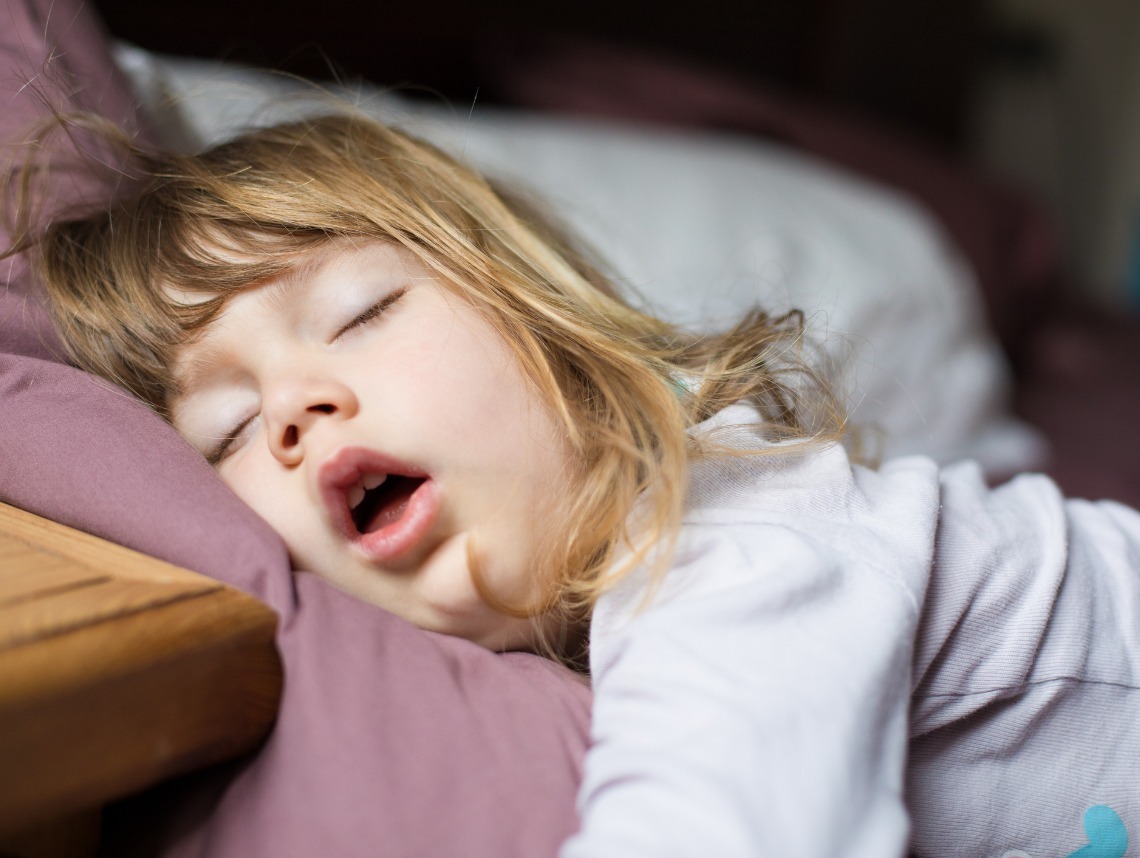As children grow and develop, they must receive the recommended hours of sleep. How long they sleep can impact everything from their attentiveness to general mood, but what happens when their ability to sleep is out of your control?
What causes sleep apnea in kids?
For some children, their nights consist of a restless sleep driven by sleep apnea. Sleep apnea occurs when a person stops breathing during sleep. If this happens because something obstructs or blocks the upper airway, it’s known as obstructive sleep apnea.
Obstructive sleep apnea causes the body’s oxygen levels to fall and interrupts sleep. This can be detrimental to the development of your child and lead to health concerns if left unattended.
Signs of Sleep Apnea in Children
Your child may not recognize that anything is necessarily wrong, so it’s up to you as a parent to recognize the signs. If your child is experiencing obstructive sleep apnea, they may show the following conditions:
Morning headaches: Less oxygen in the bloodstream while sleeping often results in morning headaches.
They’re constantly sleepy or yawning a lot during the day. We’re not talking about babies. Babies sleep a lot. But if your school age child is yawning all day and looks tired, they may not be getting quality sleep due to sleep apnea.
Snoring: By itself, snoring isn’t an indication of a sleep disorder. But if your child gasps during their snores, it could be a sign of obstructive sleep apnea.
Sleeping in unusual positions: Just as with snoring, an unusual position, by itself, doesn’t necessarily mean a child has sleep apnea. However, if you see your child sleeping this way, pay attention to his or her breathing patterns. Your child may be trying to breathe easier by positioning themselves in odd ways.
Open mouth breathing: Open mouth breathing may be a sign of issues with tonsils or adenoids, which are a common cause of obstructive sleep apnea.
Behavioral issues: Kids with sleep apnea are more likely to be hyperactive and have trouble paying attention in school. It also increases the chances of a child engaging in aggressive behavior.
Risk Factors for Obstructive Sleep Apnea in Children
There are several risk factors that can affect a child’s breathing pattern while sleeping:
- Asthma
- Nasal congestion
- Enlarged tonsils and adenoids
- Being overweight or obese
- Endocrine disorders
- Defects in the mouth, jaw, or throat
- Diabetes
- Down Syndrome
- Cerebral Palsy
- A family history of sleep apnea
What are the consequences of not obtaining treatment?
Lack of sleep can also cause attention issues, including attention deficit hyperactivity disorder (ADHD). Children with ADHD have a difficult time focusing in class, which can lead to other behavior issues.
Along with an increase in behavioral issues, your child can experience developmental issues if left untreated for obstructive sleep apnea. This includes not reaching regular milestones associated with other kids their age.
Diagnosing Sleep Apnea in Children
If you think your child is experiencing sleep apnea, the first thing you should do is see your pediatrician – or a pediatrician who specializes in sleep disorders. Because tonsils or adenoids cause most sleep apnea, your doctor will check your child’s tonsils and adenoids to see if they’re enlarged.
Treatment Options for Obstructive Sleep Apnea in Children
One of the most common treatments for children with obstructive sleep apnea is to remove their tonsils and adenoids.
If the child is obese, a doctor may recommend weight loss and implementing healthier habits.
Other solutions include sleep studies — where your child stays overnight in a hospital or sleep center to be monitored — and, supplemental oxygen treatments like a CPAP or BiPAP machine.
However, only a pediatrician who’s treating your child can decide what’s best for him or her.
When to Consider Home Care Services
If you’re caring for a child with obstructive sleep apnea, you know that the more you monitor your child’s sleeping, the fewer hours you get for yourself. With home health care services, you don’t have to do it alone. Instead, professional caregivers can monitor your child’s sleep, changes in breathing, heart rate, and other vitals from the comfort of your home. You’ll get the sleep you need, and your child receives the attention they need to have a good night’s sleep again.
Contact Care Options for Kids for Obstructive Sleep Apnea Care
If monitoring your child is becoming too overwhelming, or if you need to look for other sleep apnea solutions, Care Options for Kids can help. Our highly-professionals offer apnea monitoring and compassionate care to your little loved one.
If you are considering pediatric home health care services, contact the caring staff at Care Options for Kids. Call today (888) 592-5855.






